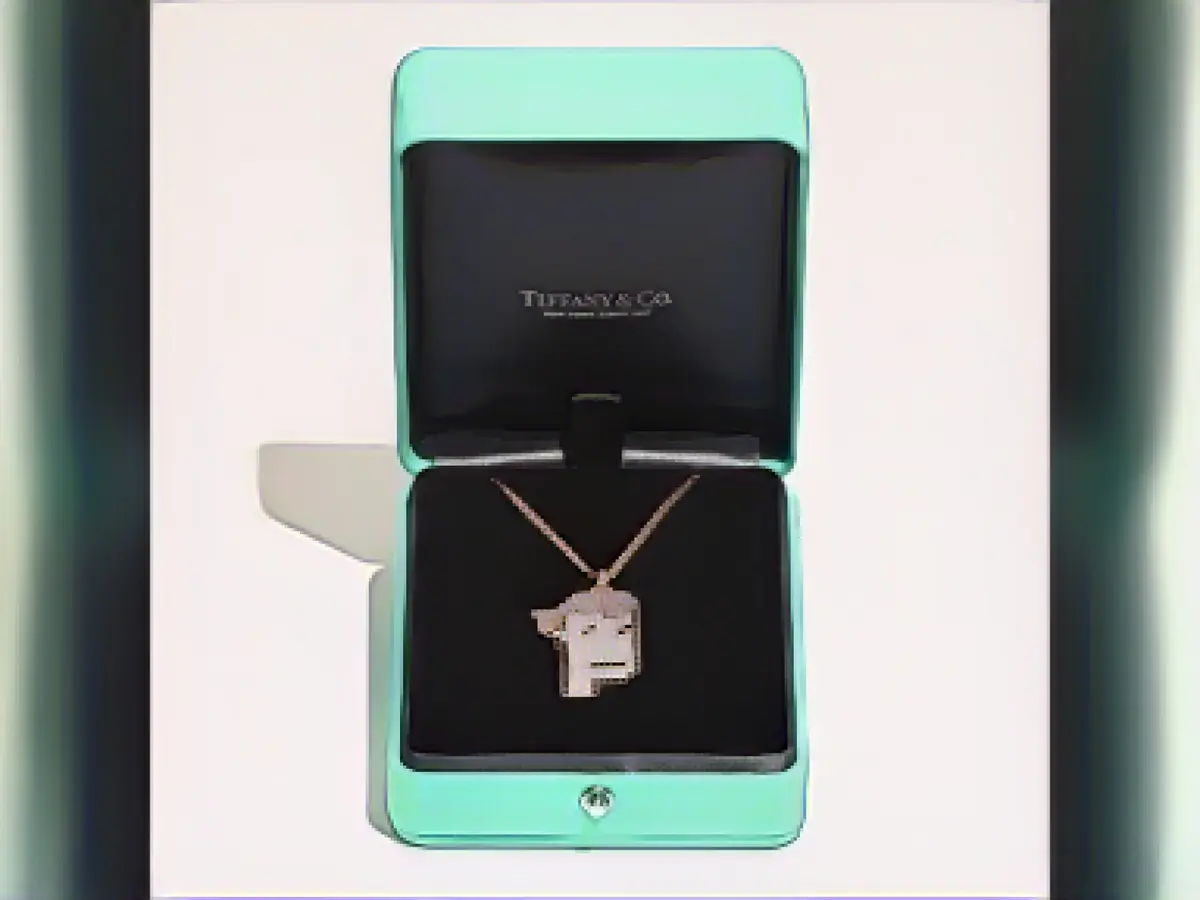In the realm of extravagant fashion, Tiffany & Co. is making headlines with its introduction of custom NFTiff pendants, priced at a whopping $50,000 each. This blend of classic craftsmanship and digital art has captured the attention of many, offering buyers the chance to own a permanent, unalterable token on the blockchain.
NFTs entered the scene in 2017 with CryptoPunks, a collection of 10,000 unique, one-of-a-kind, 8-bit character designs stored on the Ethereum blockchain. As per Noah Davis, the head of CryptoPunks and former digital director at Christie's, these NFTs are like "cave paintings of the Web3 art world."
To acquire an NFTiff, prospective buyers must already own a CryptoPunk. Tiffany's website and social media platforms have sold 250 digital NFTiff passes, granting holders the power to select specific CryptoPunk characters and receive bespoke pendants coupled with accompanying NFT artwork.
Each NFTiff package includes a pendant and a digital counterpart, boasting a steep price tag of around 30 ETH, or roughly $50,000.
Davis believes that the Tiffany pendant is one of many possibilities in the world of NFTs and sees holding an NFT as a significant advantage in the digital age. NFTs, in his view, are unalterable, permanent entries that can't be tampered with, faked, or deleted.
Luxury fashion brands like Tiffany & Co. are joining the NFT craze, following the footsteps of traditional auction houses such as Christie's and Sotheby's, which have entered the NFT market with eye-catching prices. Gucci also announced its plans in May to accept Bitcoin and other cryptocurrencies as payment.
As virtual worlds gain increasing importance in our daily lives, Davis predicts that the value of virtual goods will only continue to soar. Tiffany's foray into NFTs represents an early move in a rapidly evolving market that can vastly enhance brand engagement, establish new revenue streams, and redefine the concept of luxury goods and their collection. By harnessing the power of blockchain technology, luxury brands can offer their customers exclusive and perpetual digital assets to complement their physical luxury items, unlocking thrilling possibilities for the future of luxury fashion.
NFT Impact on the Luxury Fashion Industry
Luxury brands are capitalizing on NFTs in various ways, leading to substantial impacts on the industry:
- Exclusivity and Community Building:
- Luxury brands are leveraging NFTs to create digital collectibles, such as merchandise and event passes, that are secured by blockchain technology. This also includes offering NFT-based memberships for exclusive benefits[1].
- Phygital Experiences:
- Luxury brands are combining digital collectibles with exclusive physical products, providing unique phygital experiences. Louis Vuitton, for instance, has paired NFTs with luxury varsity jackets through the Via NFT project[5].
- Sustainability and Authenticity:
- Brands like Louis Vuitton and Coach are using blockchain-based digital product passports (DPPs) to authenticate their products, track sustainability metrics, and enhance resale prospects[5].
- Influencer Collaboration:
- NFTs are enabling influencers to monetize their content by offering exclusive digital collectibles or membership perks, all manageable via platforms like Vista Social[1].
The integration of NFTs by luxury brands like Tiffany & Co. promotes enhanced brand identity, fosters deeper audience engagement, and paves the way for new revenue streams. The blending of NFTs with physical products, exploration of Web3 strategies, and the drive for exclusivity, sustainability, and innovative customer experiences are significant trends in the luxury fashion industry.
[1] https://www.forbes.com/sites/forbestechcouncil/2021/07/22/why-luxury-brands-must-embrace-nfts-to-win-in-the-future-of-retail/?sh=71e91bc02a8c [3] https://www.forbes.com/sites/forbestechcouncil/2021/04/19/how-luxury-brands-can-leverage-the-metaverse-to-create-exclusive-experiences-and-make-more-money/?sh=3c5826911850 [5] https://consensys.net/dapp-studios/louis-vuitton-tokenized-passports/








